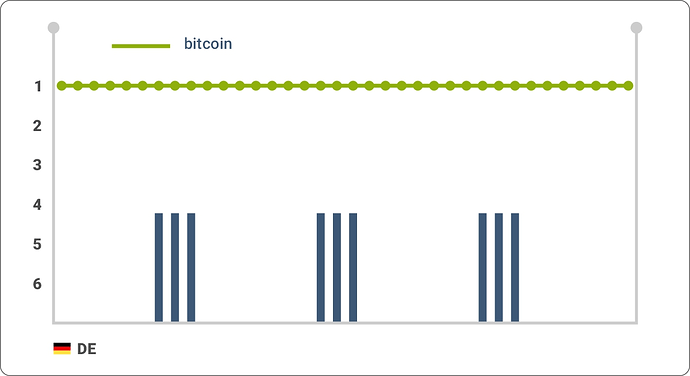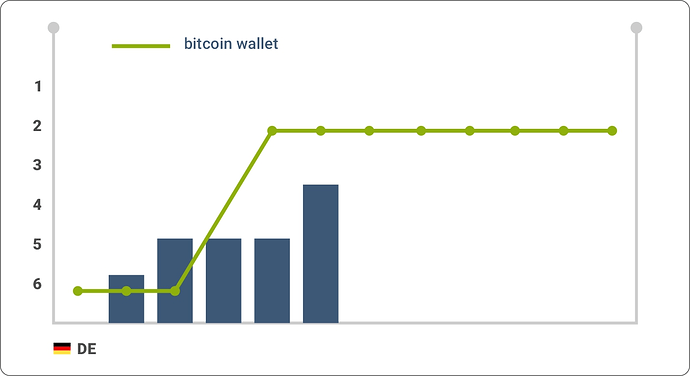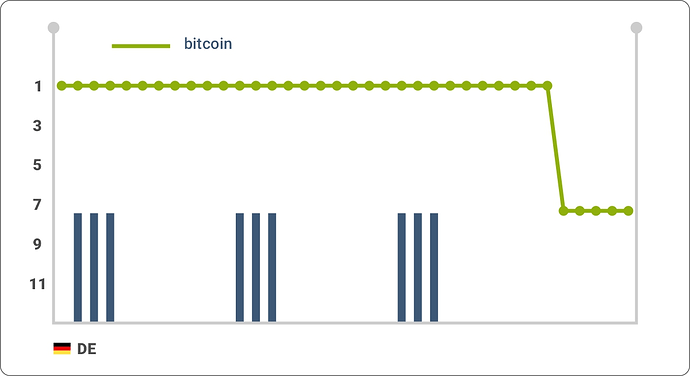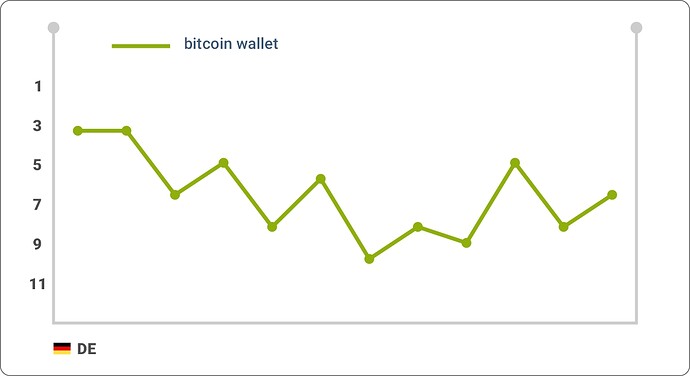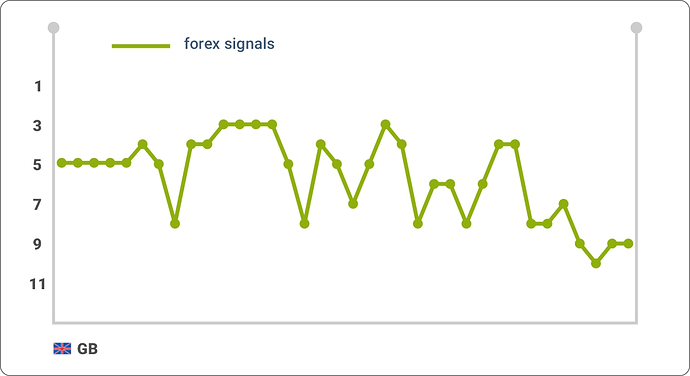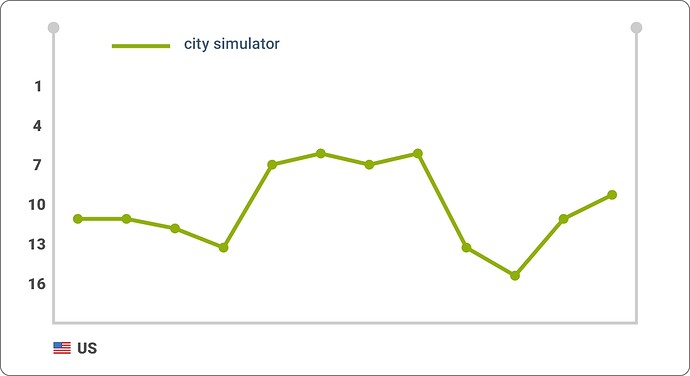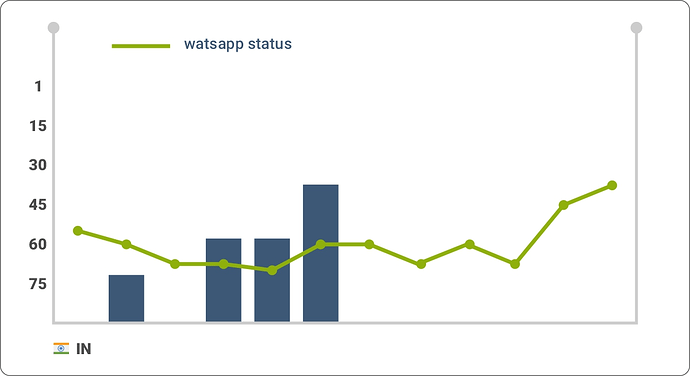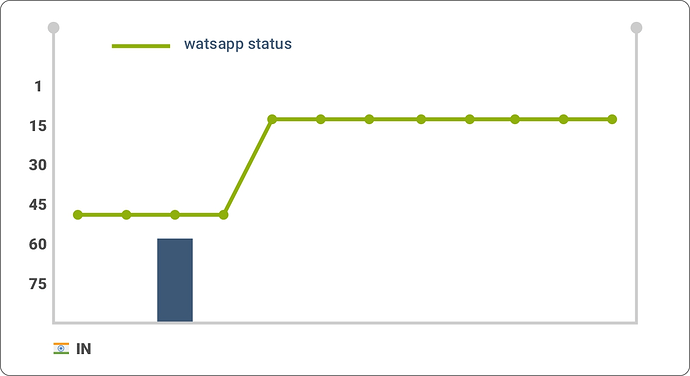App Promotion
Make sure your app has a chance to occupy top ranks
Most probably have already asked yourself what can make your app keyword promotion even more successful so the application gets top positions even for high-frequency keywords without thousands of spendings. In my blog I have a lot of cases studiesCase Studies – Keyapp.top Blog](]Case Studies – Keyapp.top Blog) and particular articles about app keyword promotion and how to make it efficient, but in the following article I would like to pay more attention to other factors that influence the success of keyword promotion.
I am gonna talk about:
- app conversion rates influence
- influence of bugs and crashes
- influence of rates and reviews.
Conversion rates
Have you ever thought that your app position for keyword may depend on the listing conversion rate? It may seem not connected at all, but that is surely needed to keep in mind that there is the direct correlation between app positions for search requests and conversion rate. The issue is that for the store algorithm, especially for Google Play, conversion from impression to install is one of the metrics which shows if the app can occupy top positions or not. If you ask me about AppStore, this is not so considered by the algorithm, as stores work differently, but anyway it works in both sides: when the app cannot achieve top positions for keyword or when the app starts to lose top positions. In both cases, I would recommend not to panic and look for the reason at the service you use for promotion, but try to make an app analysis and research the changes happening within the recent time.
Let’s check the example which I observed with one of the promoted apps. As you may see with the first screenshots, the app occupied top of the list for several middle- and high-frequency keywords within a long period of time.
At the same date the ranks went down for both keywords. As I haven’t changed any texts or graphics, I started to analyse the reasons which could influence and find out that the store listing conversion rate went down for 4.41%. So obviously these two events were connected and at that stage my task was to find out the reason of conversion decrease.
You may ask what to do in such cases?
The answer is pretty simple. **The most important is to work with the app to increase the conversion rate. This include the work with graphics (screenshots and icon), texts, crashes and reviews which will be discussed later in this article.The most important thought we would like to point on is that keyword installs is not the only tool which help to increase the positions for search requests. Let’s be honest, this promotion helps a lot when the ASO is done and you need to get top ranks, but this won’t help if the app isn’t worked out properly, as store algorithms take to the account all the app metrics before boost to top 1.
Bugs and crashes
Most probably, every app developer is aware that app crashes should be fixed ASAP as this influences the user experience and loyalty. But do not forget that we should consider both bugs and crashes when we are talking about app marketing. Basically, there are several problems caused by crashes which can influence the app positions for keywords:
Crashes influence the unistall rate
As you could already get, store algorithms are sensitive to any changes the app has and this may result in ranks decreasing or impossibility to get higher for keywords. We have already discussed the situation with conversion, so the issue with unistall rate is pretty the same. The more crashes and bugs the app has, the higher the unistall rate will be. This already influences directly the positions for keywords. In most cases, Google or Apple won’t let the app to occupy top 1 if the algorithm sees that the app has high unistall rate. This already shows that there are issue which should be fixed with the app itself, so if to talk about keyword promotion, in such cases keyword installs may not even help to increase the position, if the work with crashes isn’t done.
Crashes influence the rates and reviews the app gets
To be honest, it works like domino effect. Unhappy users may uninstall app because of crashes, leave negative reviews which also influence the positions, negative reviews influence the conversion rate. All these issues are seen by the store algorithm and the position doesn’t increase or even decrease.
With the following screenshot you may see how the positions for several middle-frequency keywords changed while the app users experienced the crashes inside the app. These examples show that crashes and bags have the direct influence on the app rank for keywords. The positions for keywords were quite stable, what is seen as the straight line at the screen, but when the users started to experience problems, the sharp changes in ranks were noticed.
The solution is quite easy as well, as the most important contribution you, as app developer, may do in such cases is permanent work with the app and fixing all the issues you or your users see at once, so to avoid the increase of uninstall rate and negative reviews.
Rates and reviews
First of all, it is necessary to mention that app reputation is one of the most important metrics which shows the user satisfaction and loyalty, as well as the metric which directly influences the conversion rate into the install. So in such a case, it becomes obvious that it is needed to pay a lot of attention to work with reviews, as well as to monitoring the app overall rating and trying to make it higher. To read more about work with mobile app reviews to increase an amount of downloads and improve brand reputation read one of our previous articles.
So let’s check how reviews and rates influence the app positions for keywords and the success of keywords promotion. Basically, the logic is pretty the same as with the previous factors, the more positive reviews and high rates the app has, the easier it will be for it to get top ranks for keywords, as well as the keyword promotion process will take less time.
Here are several factors which influence in this case:
- Store algorithm checks the rates and reviews to get how “good” the app is, as app reputation shows actually how the app developer works with an app. So for store the high rating the app has is the mark that the app works correctly and is popular among its users, so it can occupy top ranks and users who will download the app for particular keywords will be satisfied as well.
- The app with high rating and positive reviews will be boosted to top for keywords faster and more successfully as store as well accepts such app more appropriate for top positions, as sees the user loyalty.
Here you may check the process of promotion of two different apps from the same keyword and from the same category. The app from the 1st screen has an unstable rating which changes between 3 and 3.5 all the time. So the position of the app for the keyword is unstable as well and changes all the time, although the promotion strategy used is correct and should have given more stable result.
The app from the 2nd screen has the rating of 4.5-4.6 already during several months. So the promotion process was faster and position is kept without any sharp changes.
As you may see from the facts and examples provided, keyword installs can help to get top positions for search requests for your app, but it is definitely needed to work with the app metrics, try to increase rating, in-app activity, get more positive reviews to make the promotion process faster, more efficient and stable, as if all these factors are not worked out, the funds for promotion may be spent, but the result won’t be the same as expected. Do not forget that app promotion is a complex process which is influenced by many factors and it is not possible to rely only on ad channels. Try to follow our recommendations and contact us to get more about app promotion!
